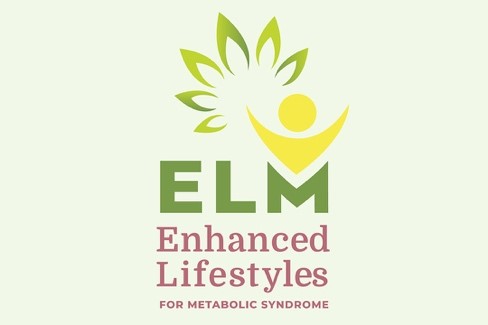Wegmans School of Health and Nutrition
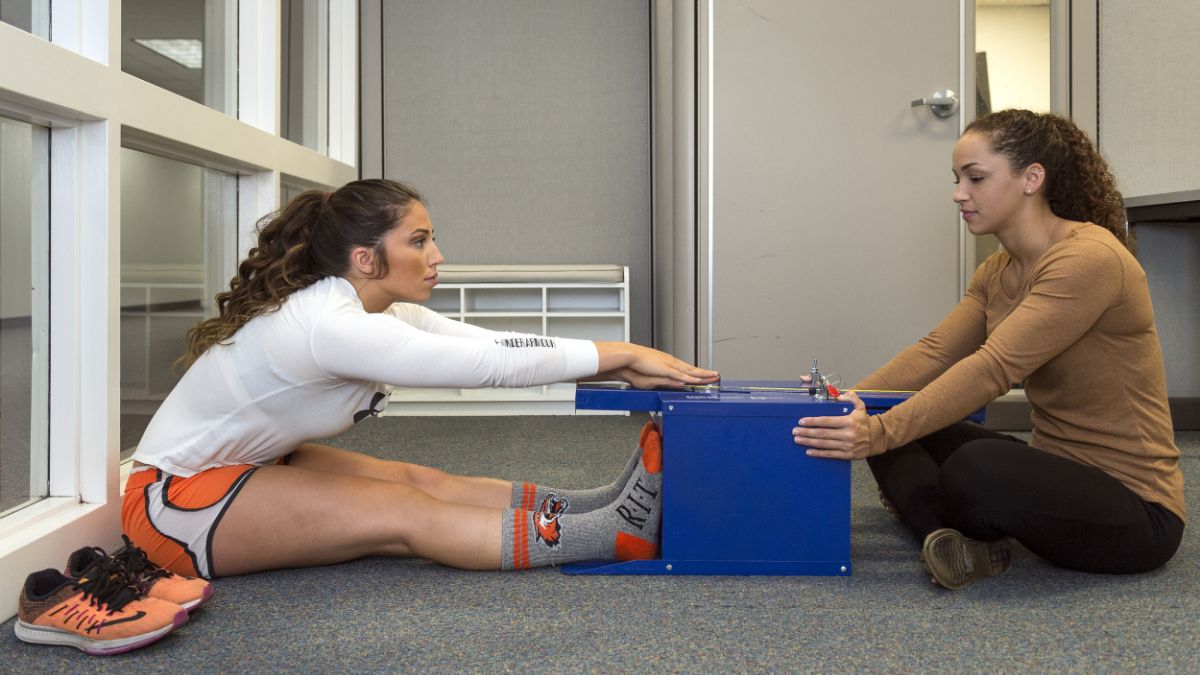
Wegmans School of
Health and Nutrition
- RIT/
- College of Health Sciences and Technology/
- Academics/
- Departments, Schools, and Centers/
- Wegmans School of Health and Nutrition
Overview
The Wegmans School of Health and Nutrition is dedicated to researching and addressing today’s critical health issues, including obesity, sedentary lifestyles, smoking, and other risk behaviors. In addition to housing majors in exercise science, dietetics and nutrition, and nutritional sciences, the school seeks new ways to influence and advance the fields of health and nutrition through practical solutions that positively impact individuals and community health.
Mission
Engineer effective health and nutrition education to be a reasonable adventure that is… feasible, sustainable, compelling, and rewarding.
Vision
Scholars, students and citizens walk the talk to secure health for all.
Strategic Goals
- Design new baccalaureate and advanced degree programs in health and nutrition to align with the shifting needs of a complex planet.
- Continue to grow and refine the nutrition and exercise science programs.
- Coordinate and implement our vision through the Nutrition Education Engineering & Designs (NEEDs) Center.
- Partner with stakeholders in industry, business, and government services to be a sound source of health and nutrition education
- Collaborate with researchers and practitioners engaged in clinical research with educational aspects.
- Engage in policy development to support efforts in health and nutrition education.
3
Undergraduate majors
2
Graduate degrees
4
Areas of research
Featured Work and Profiles
-
Dispelling Myths Through Research: Student Debunks Misinformation on Athletes' Eating Habits for Peak Performance
Abigail Morrissey's research entails analyzing the eating habits of RIT student-athletes to establish trends and patterns.
Read More about Dispelling Myths Through Research: Student Debunks Misinformation on Athletes' Eating Habits for Peak Performance -
Student Research Experiences
Undergraduate and graduate students in the Wegmans School of Health and Nutrition gain valuable, hands-on research experience through classroom and community-based opportunities.
Read More about Student Research Experiences -
Nutrition Guide Fuels RIT Athletes
The Performance Nutrition guide, a collaborative effort between the Wegmans School of Health and Nutrition and RIT Athletics, is a resource for student-athletes to support their performance through...
Read More about Nutrition Guide Fuels RIT Athletes -
Part-time graduate education is achievable.
Part-time graduate education is achievable.
Read More about Part-time graduate education is achievable. -
Food and Culture of Scotland
Students enrolled in Techniques of Dietetics Education (NUTR-333) combined their writing, video production, and theory-based nutrition education skills to create videos on a culture of their choice,...
Read More about Food and Culture of Scotland -
Using Simulation to Train Nutrition Students
A unique aspect of RIT’s Dietetics and Nutrition program
Read More about Using Simulation to Train Nutrition Students
Latest News
-
November 11, 2025
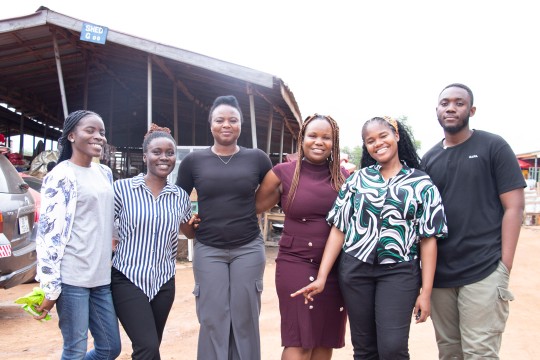
RIT professor brings nutrition expertise to international collaboration
A remote networking session Associate Professor Brenda Abu attended for academics from African countries has led to a promising collaboration that extends her scholarship and the influence of RIT to communities in Ghana.
-
July 26, 2024

Siblings explore the Mediterranean diet in Greece
When David, a third-year exercise science major, heard about the study abroad program offered through RIT Global, he was determined to go and to take his sister with him. In June, the Brassies left for the six-week program at Perrotis College, where they would study the Mediterranean diet and Greek culture.
-
February 9, 2024

Researchers work to benefit society
RIT's researchers are improving healthcare for marginalized populations, explaining mysteries of the universe, battling anemia, and making autonomous driving systems more secure. Meet four of them.
Undergraduate Degrees
Nutrition, diet, and exercise can have a remarkable impact on our health. The undergraduate degrees offered by the Wegmans School focus on educating students on how to help others reap the benefits of healthy nutrition and regular exercise, and the many ways healthy living can improve our overall well-being.
Study human performance and train athletes or promote recovery from chronic health conditions.
Learn more about the Exercise Science BS programImmediately join the workforce as a fitness professional while giving yourself a deeper understanding of the human body and its respective functions.
Learn more about the Exercise Science Certificate programRIT’s nutritional sciences degree combines nutrition, biology, and behavioral health to prepare you to design and administer health, nutrition, and wellness programs.
Learn more about the Nutritional Sciences BS programGraduate Degrees
Explore advanced nutritional science and dietetics in our MS program. Gain skills to become a Registered Dietitian Nutritionist (RDN) and make an impact on people’s health.
Learn more about the Dietetics and Nutrition MS programDesign and lead wellness programs that help people live healthier lives while boosting organizational productivity.
Learn more about the Health and Well-Being Management MS programMinors and Immersions
The exercise science minor includes foundation sequences in anatomy and physiology upon which the basic principles of exercise physiology, fitness assessment, and the preparation of fitness programs are built. The minor prepares students to sit for professional certification examinations for work in the fitness industry, provides understanding of sports physiology for those interested in sports equipment design and technology, and complements and enhances personal fitness.
Learn more about the Exercise Science Minor programThe nutritional sciences minor enhances a student’s major with a focus on nutrients and human nutrition issues. The study of nutrients includes knowledge about their sources, metabolism, and relationship to health. Nutritional status impacts medicine, health care policy and promotion, global relationships, issues in anthropology and sociology, exercise science, food systems, hospitality, and behavioral health.
Learn more about the Nutritional Sciences Minor programFacilities
-
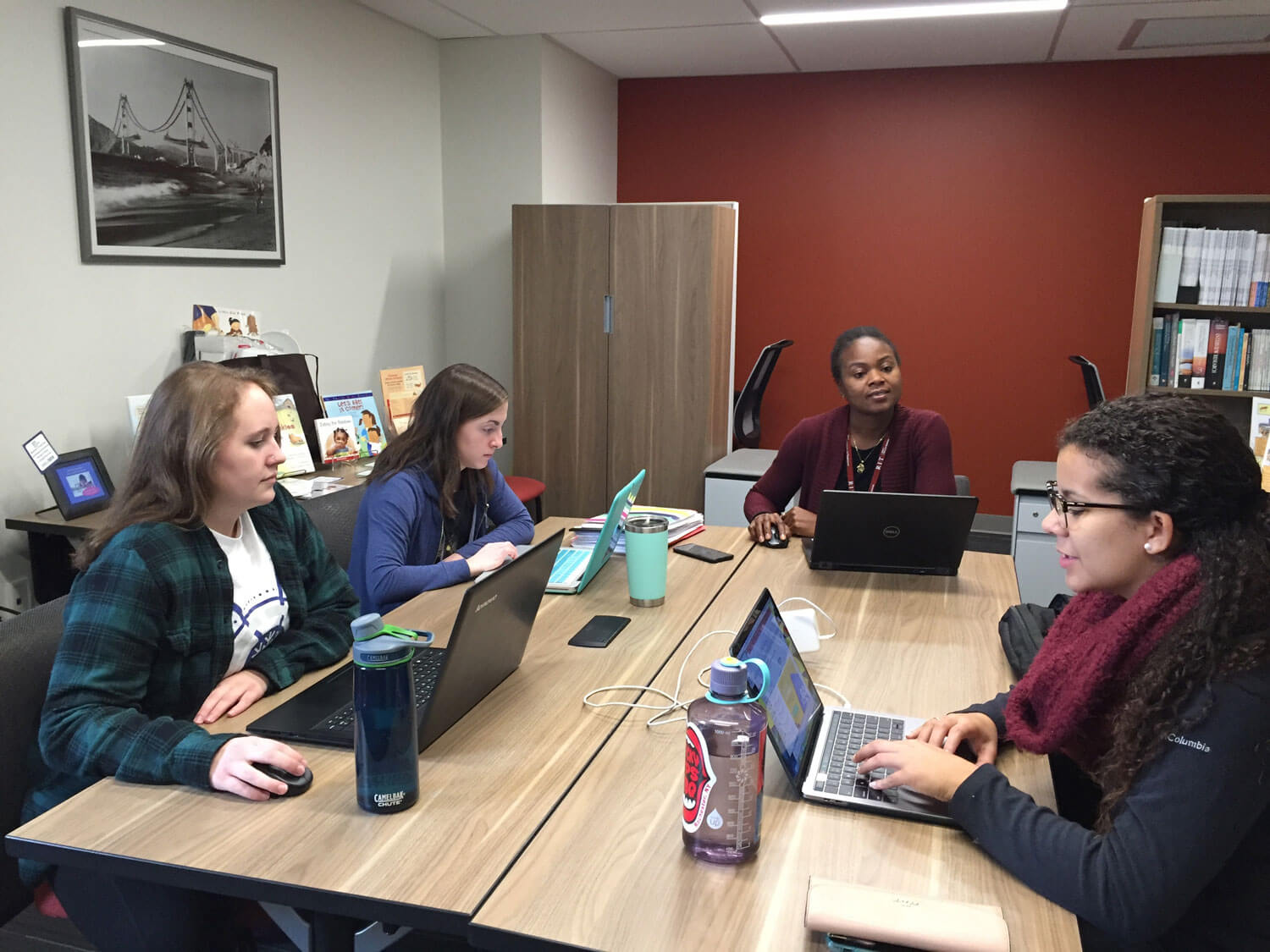 Nutrition Assessment Lab
Nutrition Assessment LabThe Nutrition Assessment Lab is dedicated to evaluating and improving nutritional health through cutting-edge tools and evidence-based methods.
-
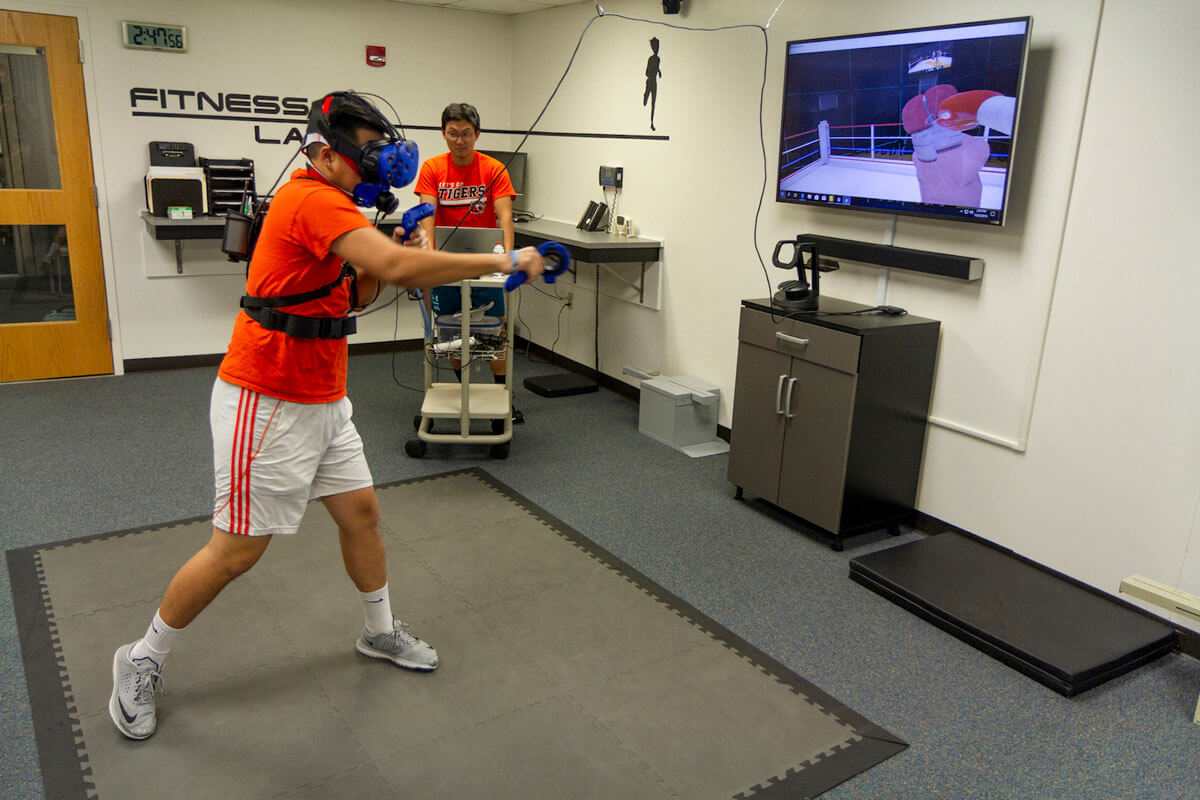 August Family Human Movement Laboratory
August Family Human Movement LaboratoryThe August Family Human Movement Lab houses state-of-the-art equipment utilized by exercise science students to gain hands-on experience conducting fitness assessments and testing.
Research
The Wegmans School of Health and Nutrition is dedicated to researching and addressing today’s critical health issues such as obesity, sedentary lifestyles, smoking, and other risk behaviors. The school seeks new ways to influence and advance the fields of health and nutrition through practical solutions that positively impact individuals and community health.

RIT’s Wegmans School of Health and Nutrition is one of five national sites conducting a randomized clinical trial to evaluate the Enhanced Lifestyles for Metabolic Syndrome (ELM) program. ELM provides tools, methods and support for healthier eating, increased physical activity and stress management and the ELM trial is studying how to best provide this information to persons diagnosed with Metabolic Syndrome. This is important because Metabolic Syndrome quintuples the risk of diabetes, doubles the risk of cardiovascular disease, and is considered a state of prediabetes and Stage A of heart failure. Metabolic Syndrome has increased in prevalence from one-quarter to one-third of Americans over the past 20 years.
The William G. McGowan Charitable Foundation awarded Chicago-based Rush University $9 million to support the national study. Partner sites with RIT are located in Kansas City Missouri, Denver Colorado, Danville Pennsylvania.
To learn more about ELM go to the ELM trial website.
This study utilizes principles of dissemination science to make the About Eating online program available statewide especially to persons with constrained resources or health issues. A dissemination inventory developed for each of the 10 fiscal regions of New York state includes more than 10,000 contacts and is being made available for use by other organizations. A second component of the project is translating the website into Spanish with the assistance of a native Spanish speaker research assistant and Ibero-American Action League of Rochester.
Read about our collaboration with Long Island Cares, one of many organizations across New York State helping to disseminate About Eating.
Breast cancer is the most commonly diagnosed cancer among U.S. women and the second leading cause of cancer death in women. Disease management and secondary prevention strategies, such as lifestyle changes, screening, and medication adherence have led to increased survival rates for breast and other cancers, but further reduction in breast cancer incidence and mortality requires enhanced professional education on cancer risk management and strategies to enhance provider-patient communication to motivate cancer survivors to be full participants in breast health care. The goals of this project are to develop, pilot, evaluate and refine PAMI: Physician Assistant Motivational Interviewing + Health Literacy to Enhance Health in Breast Cancer Survivors, a breast cancer education program grounded in theory for Physician Assistant students to refine breast cancer survivorship knowledge, develop competency in Motivational Interviewing (MI), and enhance patient health literacy. The PAMI curriculum will be developed by a team of subject matter experts and vetted by a diverse group of survivor advocates served by the Breast Cancer Coalition of Rochester (BCCR). Two groups of ~20 fourth and fifth-year Physician Assistant student-participants will engage in comprehensive, online training (lecture, survivor-advocate panel, guided discussion, role-play, reflective journals) including participation in Breast Cancer Coalition of Rochester (BCCR) survivor support groups to better understand the concerns of breast cancer survivors. Student-participants will be evaluated by validated survey instruments (ie. Cancer Attitude Questionnaire, Multicultural Sensitivity Scale), knowledge tests, and pre-post video-recorded student-led counseling sessions with breast cancer survivor standardized patient scenarios with 1:1 coaching for improvement. In addition, student-participants provide video-recorded 1:1 motivational interviewing sessions to the breast survivor community. Survivor-participants will evaluate the students' effectiveness using open-ended questions and validated measures (ie., Care Satisfaction Questionnaire), and a sub-group of survivor-participants will engage in a focus group to assess their experience. This project has the potential to re-conceptualize Physician Assistant communication training and equips graduates to fully partner with breast cancer survivors to enhance care, health, and quality of life.
Premature cessation of screen usage is a common behavior post-concussion, given the taxing nature of a screen-time task. In the academic setting, screen-time is a near unavoidable component. However, complete avoidance of class and screen use may in fact provoke psychological symptoms of anxiety and depression in students, for fear of falling behind in their studies. This study aims to investigate compensatory measures to assist students as they attempt to maintain academic involvement throughout their concussion recovery. Blue light blocking glasses have been shown to significantly increase screen-time usage in individuals with post-concussion syndrome, yet these results are only representative of a small portion of the concussion population. Thus, further investigation whether blue light blocking glasses can prolong screen usage prior to symptom exacerbation, specifically in concussed students that are still within the normal recovery timeframe.
Curriculum designed to educate children, parents, and preschool providers on the principles of the Division of Responsibility in Feeding and USDA Core Nutrition Messages. Collaborators includes Volunteers for America and YMCA of Greater Rochester.
Visit website: NEEDs for Tots
Research and outreach efforts that focus on developing, implementing, and evaluating school- and family-based interventions to effectively address childhood obesity and promote healthy habit development.
View Fuel for Fun video
Cleaned.Cut.SNAP is a pilot project that evaluates point-of-sale financial incentives for SNAP participants to encourage the purchase of fresh vegetables, including "Cleaned and Cut" vegetables at select Foodlink Curbside Market mobile farmer’s market locations and select Wegmans Food Markets in Rochester, NY.
Anemia is a persistent micronutrient deficiency affecting women and children across the African continent. This research project provides educational opportunities for students to learn about nutrition-related childhood anemia issues of developing countries and the programs and interventions being implemented to address the problem. Collaborators include PointHope International and University of Cape Coast.
RIT News Story: Students study anemia in Ghana
✓ Completed Project
NEEDs Center
The mission of the NEEDs Center is to engineer and design research and evaluation services that foster promotion and delivery of evidence-based health and nutrition education. The NEEDs Center is administered out of the College of Health Sciences and Technology.
Learn more about the work of the NEEDs Center by reviewing our research and resources:
Read more on the NEEDs Center website
















